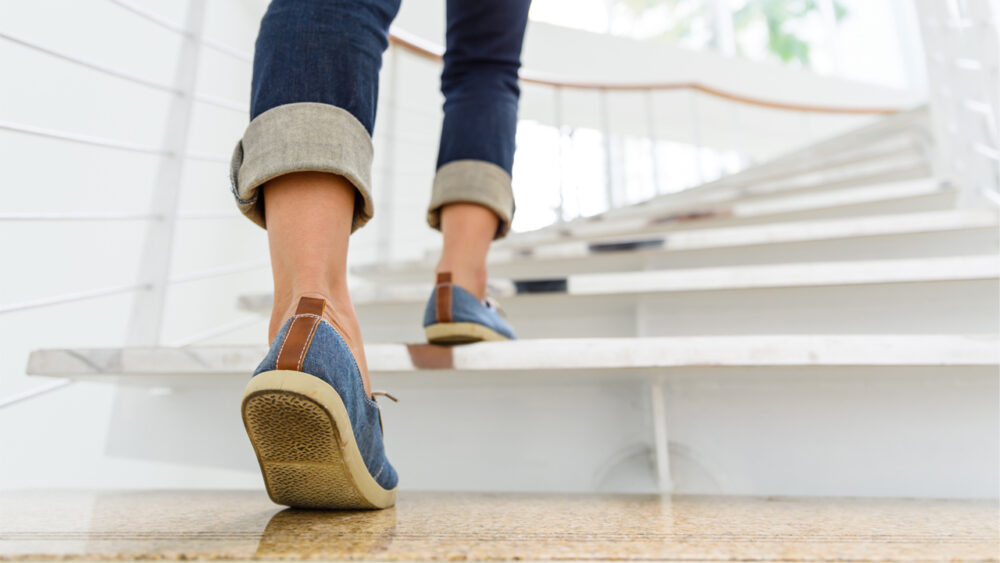Next time you have the choice, consider taking the stairs — it’s a simple move that can deliver a big boost to both your body and mind.
Skipping the elevator in favor of climbing a few steps can significantly improve your health. This small decision may increase cardiorespiratory fitness and lower your risk of cardiovascular disease.
This form of brief exertion, sometimes referred to as “snacktivity” or vigorous intermittent lifestyle physical activity (VILPA), helps counter the risks of a sedentary lifestyle. In fact, new research found that replacing just 30 minutes of sitting with 30 minutes of any level of physical activity can help lower the chance of a cardiac event, and using the stairs can help contribute to this total.
“It’s an exercise that nearly everybody can perform because they have access, and they do it on the daily basis,” says Alexis Marcotte-Chenard, a postdoctoral research fellow in heart, lung and vascular health at the University of British Columbia in Kelowna, Canada, according to the BBC.
“When you do exercise snacks, you don’t need any fancy equipment, you can just use your own body, you can use stairs… And if you’re doing physical activity throughout the day, you don’t have to dedicate an hour for your workout.”
A brief stair climb can quickly help elevate your heart rate and build muscle in your legs. The activity can also help develop stabilization muscles and improve balance, all valuable qualities as we age.
The good news? Even going downstairs is beneficial.
Heading down steps requires your thigh muscles to lengthen, known as eccentric contraction. While the movement may be more effortless from a cardiovascular perspective, it can deliver more beneficial muscle damage, help build strength, and burn more calories longer term during the repair and recovery phase.
Knocking out a couple of flights of stairs might also be good for your brain. A study by researchers at the Yamaguchi University Graduate School of Medicine in Japan found that individuals who climbed two flights of stairs benefited from enhanced focus on problem-solving.


